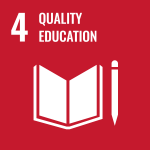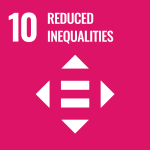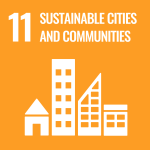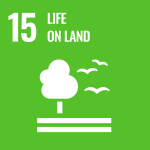Addressing the sustainable development goals
The sustainable development goals
To guide the response of the different aid agencies and not-for profits who seek to address this, the United Nation’s adopted the Sustainable Development Goals in 2015.
Put simply, Fairtrade’s mission is to end poverty “in all its forms, everywhere” and leave no one behind. Sadly, the reality is that more than 780 million people still live below the international poverty line.
The Sustainable Development Goals (SDGs) are a set of 17 global goals designed to combat poverty and achieve sustainable development by 2030. It is safe to say they each overlap with farming and food in some way, covering issues like climate change, education and drinking water – to name just a few.
But this all feels like a pretty huge problem right? Where do you start? This is where Fairtrade comes in. We have prioritised goals that are most closely linked to our work.
Of course, Goal 1 – No poverty – is central to our mission and our work towards living income.
The goals we have prioritised are:
Goal 1: End poverty in all its forms everywhere
![]()
This goal is central to Fairtrade’s mission. All of our work stems from this overarching goal, as we seek to ensure that trade enables smallholder farmers and workers to earn a decent living and have a brighter future for themselves and their families.
Goal 2: End hunger, achieve food security and improved nutrition and promote sustainable agriculture
![]()
Small-scale farmers continue to provide a large percentage of the world’s population with food. That means creating robust livelihoods is crucial for achieving this goal. Fairtrade enables more secure and stable incomes for small-scale farmers and supports them to build strong, resilient businesses.
Goal 4: Quality education

Equitable access to training and informal education for adults and youth will increase future opportunities available to all. Fairtrade farmers and workers choose to spend a portion of their Fairtrade Premium funds on children’s education, while the three Fairtrade producer networks invest significantly in training and learning opportunities for producers.
Goal 5: Achieve gender equality and empower all women and girls
![]()
The UN Food and Agriculture Organisation has identified that overcoming gender inequalities can reduce the number of hungry people in the world by 150 million. Fairtrade supports women to participate equally in agriculture, earn better wages and diversify their income and opportunities. Read more on our page addressing the gender gap.
Goal 8: Promote sustained, inclusive and sustainable economic growth, full and productive employment and decent work for all
![]()
In line with the UN International Labour Organisation and national legislation, Fairtrade promotes better working conditions, supports workers to negotiate for better pay and is striving to achieve living wages for workers on Fairtrade plantations. Our standards prohibit child and forced labour and we work with young people, their communities, producer organisations and governments to enable them to tackle the root causes themselves.
Goal 9: Build resilient infrastructure, promote sustainable industrialisation and foster innovation
![]()
Fairtrade is committed to building transparent and traceable supply chains and working with partners to unleash dynamic and competitive economic forces that generate employment and income.
Goal 10: Reduced Inequalities

We call for trade policies and collective action that will unlock greater benefits from trade for all farmers and workers. Fairtrade prices and Premium are a safety net, and our living income and living wage strategies provide a pathway towards decent livelihoods for more people. Inclusion efforts and economic interventions will lead to greater gender equality, increased opportunities for young people, and reductions in discrimination.
Goal 11: Sustainable Cities and Communities

Producer organisations are pillars in their communities. They invest Fairtrade Premium funds to improve infrastructure and services and build resilience in the face of climate change.
Goal 12: Ensure sustainable consumption and production patterns
![]()
Fairtrade is the leading ethical label worldwide. Through our campaigns and advocacy work, we bring together thousands of communities and millions of consumers worldwide to campaign for fairer trade. We are also developing markets in the South such as India, to enable the growing consumer base to make sustainable lifestyle choices.
Goal 13: Take urgent action to combat climate change and its impacts
![]()
Small-scale farmers are already bearing the brunt of a changing climate. Fairtrade works with producer organisations and climate experts to build farmers’ resilience to climate shocks and stresses and thus be better equipped to adapt to, and mitigate their own impacts on global warming. Read more on our page addressing climate change.
Goal 15: Life on land

Fairtrade Standards requirements and climate resilient practices will reduce pressure on protected areas and forests, and reduce loss of biodiversity.
Goal 17: Strengthen the means of implementation and revitalise the global partnership for sustainable development
![]()
Power imbalances in supply chains that favour companies over small-scale farmers in developing countries can be a barrier to implementing the SDGs. Fairtrade works with multiple partners – producer organisations, businesses, trade unions, civil society, governments and other multi-stakeholder bodies. Together we can support governments to build policies that enable fairer trade for all and which deliver on the SDGs’ ambitious agenda.


